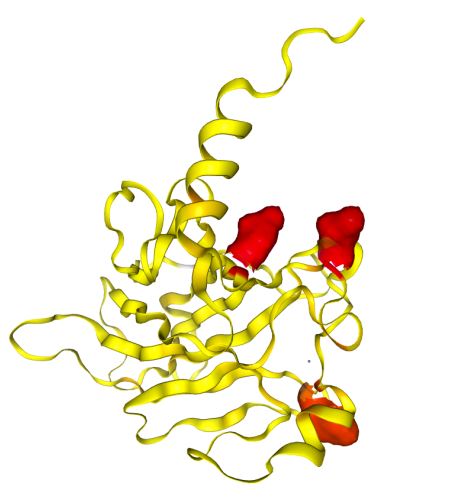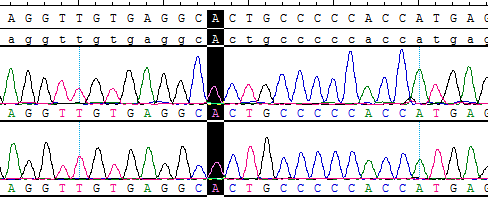Gene Guardian: Tumor Suppressor Gene TP53
What is TP53?
Mutations in the TP53 gene are common in a variety of cancer types. More than 50% of tumors will have mutations in this gene, which are usually related to disease progression, poor response to treatment, and poor prognosis. The protein P53 encoded by this gene has a molecular weight of about 53kDa, from which TP53 gets its name.

Fig 1. P53 protein
TP53 and tumor
TP53 gene is an important tumor suppressor gene. The transcription factor it encodes regulates cell division and proliferation, and can inhibit the development and growth of tumors. It is called the "guardian of genes". Tumor suppressor genes can be regarded as the brakes of automobiles. Normal p53 is activated when DNA is damaged, causing the cell cycle to stagnate at the G1/S point and performing DNA repair. If the repair fails, it activates downstream genes to cause cell apoptosis.
When TP53 is mutated, it loses its function or its function declines. Damaged cells cannot be repaired, nor will they enter the apoptosis process, which can induce tumors. In addition, TP53 mutations can also produce tumor-promoting functions, such as inducing drug resistance, promoting tumor spread, and promoting angiogenesis.
TP53 gene mutation
TP53 gene mutation is the most common mutation in cancer cells. The TP53 gene mutation forms and mutation sites are very complex and diverse. Most tumor suppressor gene mutations occur in the deletion or displacement of large fragments. However, there are many single-point missense mutations in the TP53 gene. Missense mutations are more to reduce the function of the TP53 gene. This mutation can occur in the gene. Any position of the P53 protein can cause loss of function, which mainly occurs at amino acid positions 175, 245, 248, 273, and 282. TP53 gene mutations are mainly divided into germline and systemic mutation types.
Germline mutations refer to these mutations that exist from birth and affect every cell of the body, and can be used as a consideration in assessing the risk of cancer in an individual. Germline mutations of TP53 are related to Li-Fraumeni syndrome.
Somatic mutations means that these mutations do not exist at birth, but are produced in the process of cancer. They are generally only found in tumor-related cells and not in other cells in the body. Systematic mutations are the most common type of mutations associated with cancer.
TP53 genetic testing
TP53 gene is a common hot spot gene in tumor detection, and the accuracy of detection is very important. We can provide a series of diagnostic standards for related sites to escort the detection experiment.
Related Products
TP53 p.C135Y Reference Standard RQP10168

Fig 2. Sanger of TP53 p.C135Y Reference Standard
TP53 p.D281Y Reference Standard RQP10209

Fig 3. Sanger of TP53 p.D281Y Reference Standard
TP53 p.Q16L Reference Standard RQP10535

Fig 4. Sanger of TP53 p.Q16L Reference Standard
TP53 p.Q331R Reference Standard RQP10214

Fig 5. Sanger of TP53 p.Q331R Reference Standard
TP53 p.R175H Reference Standard RQP10143

Fig 6. Sanger of TP53 p.R175H Reference Standard

